Korea’s Deeper Ties with UAE,
Saudi Arabia, Egypt
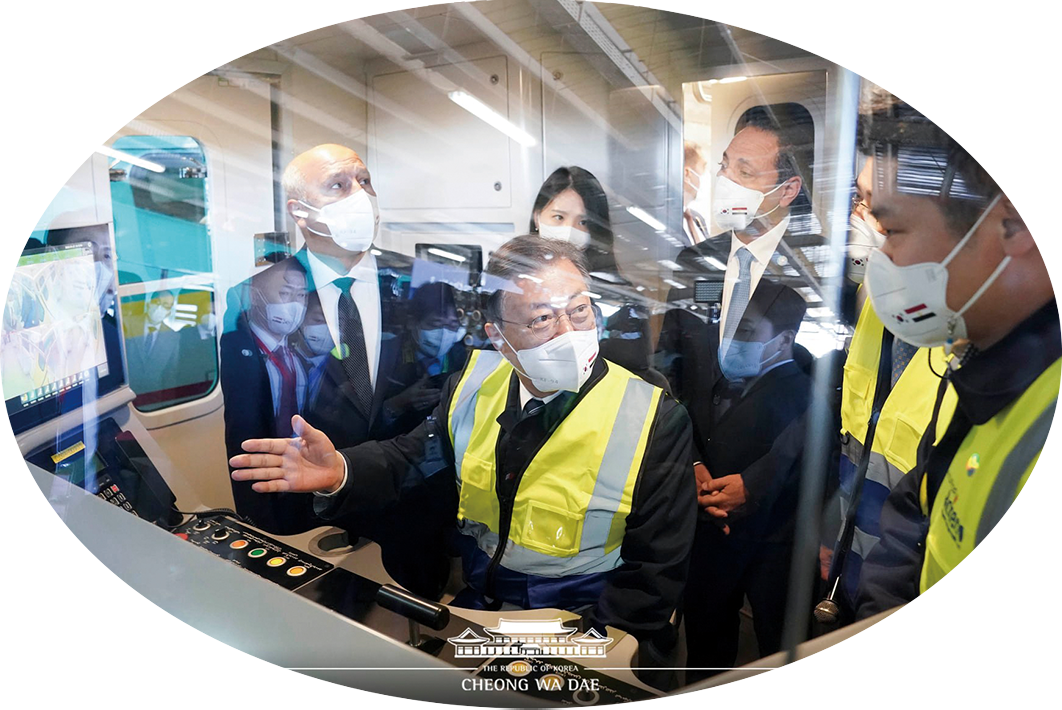
President Moon on Jan. 21 inspects Cairo’s Metro Line 3 under construction. © Cheong Wa Dae
WRITTEN BY
Sohn Ji-ae
Photos courtesy of
Cheong Wa Dae
On a January tour of the United Arab Emirates, Saudi Arabia, and Egypt, President Moon Jae-in consolidated Korea’s growing presence and forged deeper ties with each country for mutual prosperity.
Across the United Arab Emirates (UAE), Saudi Arabia, and Egypt, Korea’s presence can obviously be felt in many ways.
The Cairo Metro trains in Egypt run on Korea’s advanced subway system, while Korean-made automobiles are easily spotted on the roads. In Saudi Arabia, expressways, airports, public transportation, and plants are built by Korean companies. In the UAE, patients are treated with state-of-the-art medical equipment in Korean medical institutions. Young people in the UAE dance and sing along to K-Pop music, while students in Saudi Arabia speak the Korean language.
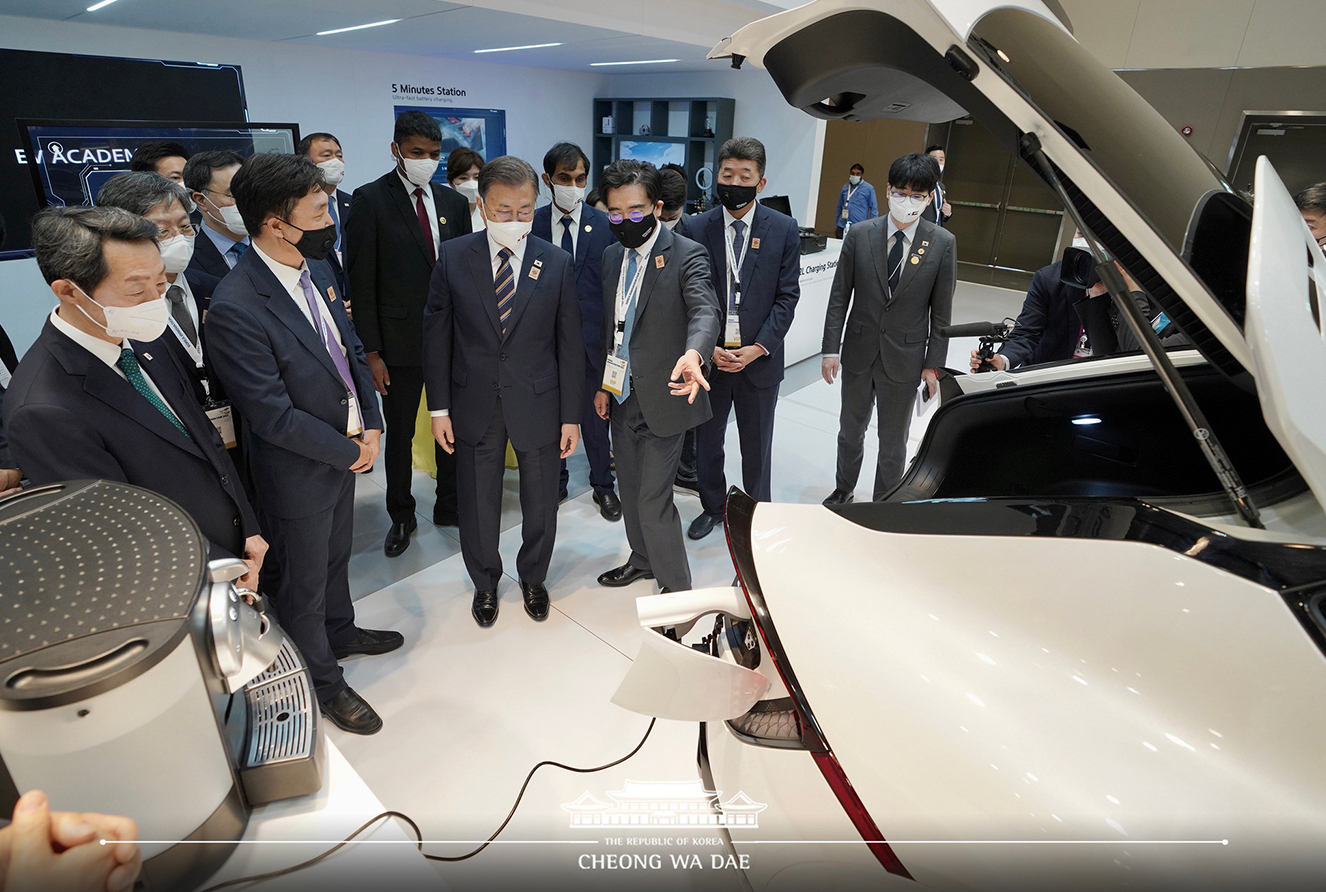
President Moon on Jan. 16 views a Korean electric vehicle at the Expo 2020 Dubai. © Cheong Wa Dae
Infrastructure and Beyond
President Moon’s eight-day tour in January of the UAE, Saudi Arabia, and Egypt focused on further solidifying Korea’s growing presence and forging deeper cooperation with the allies.
During every stop of the trip, President Moon pitched for cooperation in infrastructure, clean energy, and healthcare, where Korea has already consolidated its footing as a great partner for the countries.
Some of major infrastructure construction projects in the Arab nations are being carried out by Korea’s companies. For example, the Riyadh Metro, the first public transport system in the capital of Saudi Arabia, is currently being constructed by Samsung C&T Corp., while the construction of the Cairo Metro Line 3 in Egypt is being undertaken by Hyundai Rotem which built Line 1 and 2.
Visiting both construction sites, President Moon expressed his confidence that Korea would become an “optimal partner” for future large-scale infrastructure development projects in each country, ranging from public transportation to hightech smart city.
Acknowledging the excellent technological and construction prowess of Korean companies, the governments agreed to further enhance the infrastructure cooperation with Seoul by working to involve more Korean businesses in their future projects. Especially, Korea and Egypt signed a deal in which Seoul would lend Cairo up to USD 1 billion for infrastructure development, paving the way for Korean companies to join railway, subway, and marine desalination projects in the African nation.
A Turning Point in Defense Ties
Defense cooperation was another focus of the high-level talks. And President Moon’s push for stronger cooperation in defense yielded tangible results.
Korea and the UAE concluded a deal worth around USD 3.5 billion on Seoul’s export of its self-developed M-SAM2, a mid-range ground-to-air missile, to the Gulf nation. It’s the biggest deal in the history of the nation’s defense industry. With the agreement, both countries are expected to strengthen bilateral cooperation in defense by actively carrying out joint research and development, production within the UAE, and joint advances to third countries.
In Egypt, President Moon made a pitch for Korea’s K9 self-propelled howitzer, raising hopes for another big export deal. His efforts paid off about one week after his trip, when the Arab nation on Feb. 1 announced its plan to import K9 howitzers worth over USD 1.65 billion.
Green Energy Partnership
Arab countries, known for their richness in renewable energy like photovoltaic and wind powers, have strengths in the production of green and blue hydrogen. Korea, meanwhile, has strengths in utilization, storage, and distribution including hydrogen-powered vehicles, charging stations, and fuel cells.
President Moon was aware that “the synergy will be enormous” if the strengths are combined.
The president’s calls for stronger cooperation in green energy struck the chord with the Arab nations. As a result, Korea and the UAE agreed on joint research and demonstration projects for hydrogen production and utilization, and on financing to support cooperation in hydrogen industry projects. In Saudi Arabia, both sides inked an agreement on building a hydrogen ecosystem where Riyadh supplies carbon-neutral hydrogen and ammonia while Seoul helps the Gulf nation operate hydrogen-powered cars and hydrogen facilities like fueling stations.
It is no doubt that there are many areas of mutual growth between Korea and each of the three countries, ranging from infrastructure to military arms, clean energy, and many more. President Moon’s tour obviously helped create much-needed momentum for forging deeper ties with the nations. The tangible outcomes from the trip will hopefully open another door for the allies to seize more growth opportunities to overcome these trying times and beyond.
Other Articles
-

Special Ⅰ A School for Families
-

Special Ⅱ Hub of Artistic Exchange
-

Trend Nostalgic Flavors
-

Hidden View Garden for All
-
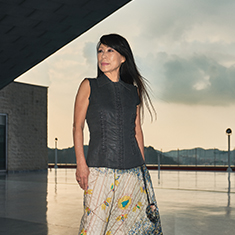
Interview Composer Unsuk Chin
-
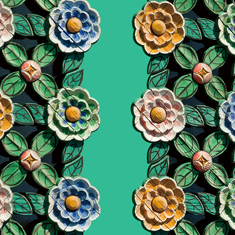
Art of Detail Magnificent Munsal
-
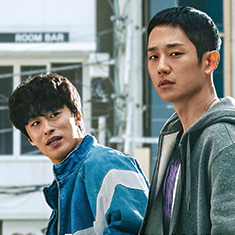
Film & TV D.P.
-
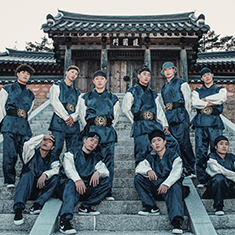
Collaboration Tradition Becomes Hip
-
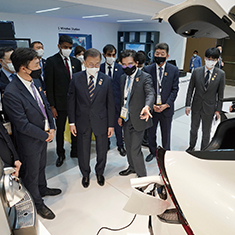
Current Korea Korea’s Deeper Ties with UAE, Saudi Arabia, Egypt
-
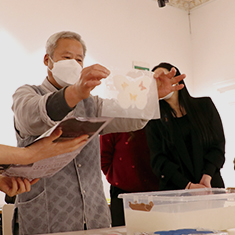
Global Korea Hanji Art Workshop in Italy
